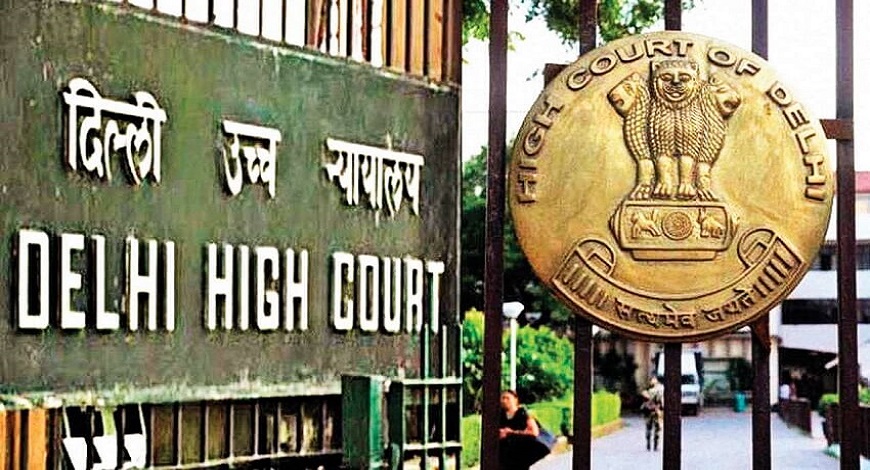The Delhi High Court on Friday issued notice on a plea seeking directions to the Jawaharlal Nehru University (JNU) University to reconsider the decision to allocate all PhD seats to Junior Research Fellowship category candidates, leaving no seat for non-JRF candidates in 2021-22, in all its seven centres.
The division bench headed by Chief Justice D.N. Patel and Justice Jyoti Singh passed this order while hearing the PIL filed by the Student’s Federation of India, Jawaharlal Nehru University Unit by Advocate Ashok Agarwal and Kumar Utkarsh.
According to the PIL, PhD seats in seven centres of Jawaharlal Nehru University were filled up through both from JRF category candidates as well as an entrance examination for non-JRF candidates earlier but in current academic year, 2021-22, JNU illegally, arbitrarily, unconstitutionally through its impugned e-Prospectus decided to fill-up all (100%) PhD seats through JRF category candidates in seven of centres, namely, (A) Centre for International Trade and Development, (B) PhD in Human Rights Studies (HRSH), (C) Centre for English Studies, (D) Centre for Indian Languages: 1) PhD in Hindi, 2) PhD in Urdu 3) PhD in Hindi Translation, (E) Centre for Study of Law, Governance (F) Special Centre for Systems Medicine and (G) Centre for Women Studies, depriving non-JRF candidates of applying against PhD seats in these seven centres.
It is submitted that the impugned shift in respondent JNU policy to completely close doors for non-JRF category candidates, who used to participate in the entrance examination earlier is totally unreasonable, irrational and has no nexus to the object underlying therein.
On June 10, the JNU released its e-Prospectus giving details of seat intake and admission procedure for the academic year 2021-22.
The Petitioner further submitted submit that its grievance against the respondent JNU is limited to the criteria of filling up PhD seats through the JRF category alone in seven of its Centres. In the previous years, in most of the centres, the PhD seats were allocated between JRF candidates and non-JRF candidates coming through the entrance examination.
It is stated that in the Centre for International Trade and Development; in the year 2019-20, 40 percentage of the seats allocated was through the JRF category; in the year 2020-21, 50 percentage of the seats allocated were through the JRF category; and in 2021-22, 100 per cent of the seats are through JRF category.
It is pointed out that in Human Rights Studies, data isn’t available for 2019-20 due to the course being introduced in the subsequent year; but for 2020-21 and for 2021-22, 100 percentage seats were allocated for the JRF category.
For the Centre for Study of Law and Governance, in both 2019-20 and 2020-21, all seats were allocated through the entrance examination, however in 2021-22; all seats have been allocated through the JRF category. In the centre for Systems Medicine, data isn’t available for previous years due to courses having been started in subsequent years; however, percentage of seats from the centre to JRF category in the year 2021-22 is 100 per cent. In the Centre for English Studies, across the last three years, all seats have only been allocated through the JRF category. In the Centre for Indian Languages, under the sub-courses offered in Hindi, 68.1 percentage of seats were offered through the JRF category in 2019-20; 62.5 percentage in 2020-21 and 100 in 2021-22. Under the same centre, in Urdu, 50 per cent of seats for PhD were through the JRF category in 2019-20 and in 2020-21 and 2021-22, all seats were allocated only through the JRF category, the Petitioner said.
The PIL alleged that for the course Hindi Translation, again under CIL, while there isn’t data on previous years intake, for 2021-22, 100 per cent of seats are through the JRF category. Further, in the Centre for Women’s Studies, seats until 2019-20 and 2020-21 were only allocated through the entrance examination, however, in 2021-22 seats have only been allotted through the JRF category.
It was highlighted in the Petition that Jawaharlal Nehru University Students’ Union (JNUSU) on 14.06.2021 sent mail to Vice-Chancellor of respondent JNU followed by letter dated 01.07.2021 requesting him to interfere in the disproportionate JRF seats allocation issue and also to Admission Branch of respondent JNU vide letter dated 28.06.2021 requesting them to roll back the discriminatory decision of seat allocation.
“That 4 PhD aspirants, namely, Aditi Sharma, Mounica Sreesai, Bheemana Gowda and Hrishikesh P. S, seeking admission in 7 Centres of respondent JNU where intake is through 100% JRF category has also sent mail to Vice-Chancellor requesting him to intervene in the seat allocation matter so as to enable them to apply for the required course in 7 Centres of respondent JNU. They respectfully submit that they vide letter dated 07.07.2021 requested to proportionately allocate seats in respondent JNU Centres so that dreams of thousands of candidates are not shattered. It is submitted that no response has been received by the petitioner so far. Hence, this present petition,” the PIL reads.


